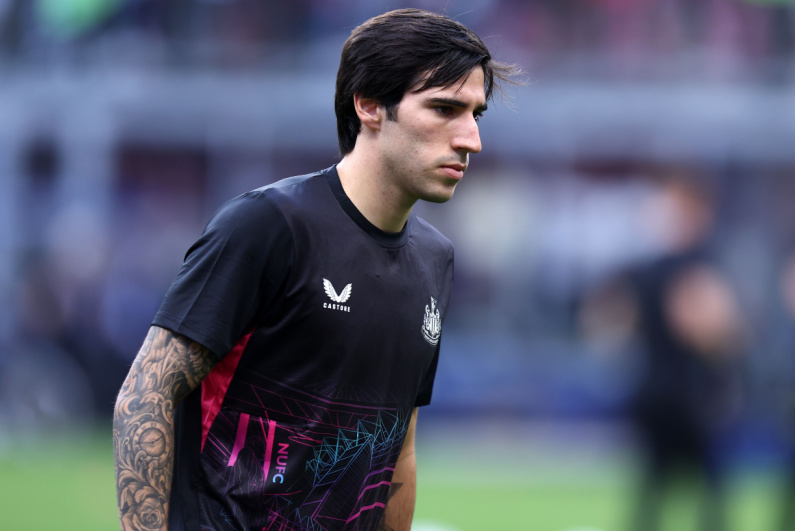Imminent gambling suspension for Tonali
Newcastle United and Italy midfielder Sandro Tonali will be banned from soccer for ten months for his role in a gambling scandal.
this summer Newcastle paid €64m ($67.6m) to acquire him
The news was confirmed by the president of Italy’s soccer association. Just this summer Newcastle paid €64m ($67.6m) to acquire him from AC Milan and to bolster their UEFA Champions League-challenging squad, but they will now be without the talented 23-year-old until the next campaign.
The rise in gambling crimes is going to necessitate change eventually—could that change come in the form of contract clauses that void salaries or transfer payments? Here, we’ll discuss how gambling clauses could look and operate in trying times for clubs and fans alike.
Contract clauses on the horizon?
Tonali will be banned at all levels of soccer, including internationally, for his gambling history. That means that he will be unavailable for the next European Championship in the summer of 2024, where his native Italy is the defending champion.
He must also attend therapy sessions for a self-described “addiction” to gambling.
Tonali is a regular in Eddie Howe’s Newcastle, who sit sixth in the Premier League table and are unbeaten in their last nine matches across all competitions.
already agreed to suspend £11m ($13.34m) of his wages
There are mixed reports regarding how Newcastle management will handle Tonali from an internal perspective. Certain outlets believe they have already agreed to suspend £11m ($13.34m) of his wages, while others are reporting that the Magpies are hesitant to dock his pay.
It’s also possible the club could refuse to pay installments of Tonali’s transfer fee to AC Milan, who he played for during the time he was illegally gambling.
All of the uncertainty creates the need for an equalizer, hence the idea of gambling clauses in player contracts. Clubs often put other addendums or add-ons in case a player wins the Champions League or scores ten goals in a season, and this would be an extension of that fitted for the modern era of entertainment off the pitch.
The sad fact is these types of crimes are only likely to increase as gambling is becoming a larger draw for all audiences. But how would these clauses look, and would players agree to them? Those are the primary questions.
Exploring potential opportunities
One of the biggest transfer targets for top clubs in the January transfer window will be Brentford striker Ivan Toney. That’s significant because he hasn’t played a single minute this season because he, too, is serving a suspension for gambling crimes.
Clearly, the controversy has not detracted from his perceived value. Brentford also confirmed they will continue to pay his base salary of £1.04m ($1.26m) despite him being unavailable for selection.
In a world where gambling clauses become the norm, we imagine they would look something like this:
- If a player is found guilty of gambling crimes, they will forfeit x amount of their salary
- If a player is found guilty of gambling crimes during their time with the selling club, the selling club will no longer receive x amount of the transfer payment
clubs won’t stumble onto sunken costs if players are suspended
Simple, but effective. Players are aware they aren’t supposed to place illegal bets, but will be further incentivized by the details of their contract. Plus, clubs won’t stumble onto sunken costs if players are suspended and they still have to pay other clubs plus the player’s wages.
It’s better to get ahead of this issue than fall behind it. The NFL and NCAA have already made considerable updates to their original gambling rules to help deal with the increasing prevalence of sportsbooks and illegal sites.
Whether this incident becomes a defining moment for the future remains to be seen. Either way, Tonali has been cooperative with investigators and is working to get himself ready for a return next year.
“He is in shock, he is shaken and sad,” Tonali’s agent Giuseppe Riso said. “I hope that this experience saves his life and that of many others, that it helps those who fall into the same habit as him.”




